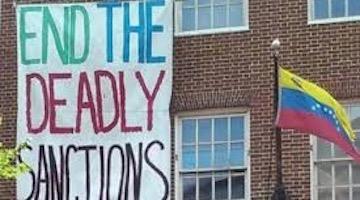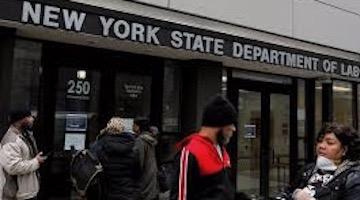Deaths caused by the pandemic are likely to occur without assistance of any kind, without any administrative record, and without acknowledgment in the news cycle.
“DRC’s lack of preparation and vulnerability during this pandemic is an extension of the ongoing violence and resource wars there.”
This week I spoke to Congolese native Jean-Claude Maswana, economics professor at Ritsumeikan University in Kyoto, about COVID-19 in DRC.
ANN GARRISON: Jean-Claude, reporting on your homeland, the Democratic Republic of Congo (DRC), is always daunting. It’s not easy to contemplate so much suffering and so much international indifference, and now DRC is facing the COVID-19 pandemic with as little health infrastructure as any nation on earth.
According to the United Nations High Commissioner for Refugees (UNHCR) in February 2020, there are five million internally displaced persons (IDPs) and half a million refugees from neighboring countries in DRC. Living in tent cities, they’ve neither any easy way to “social distance” nor to wash their hands off and on all day. And they’ll be the last to receive tests, masks, hand sanitizer, or medical care.
On top of all that, many in Congo’s cities and towns lack the most basic infrastructure. President Félix Tshisekedi’s government promised to ensure electricity and running water throughout the pandemic, but according to Energypedia, only 19.09% of Congolese have electricity in the first place, and a 2011 UN report—the most recent I could find—said that 3/4 of the population lack access to clean water, "even though the country holds over half of Africa’s water reserves."
Before we talk about the national and global context of this, tell me what you’ve done to help from there where you teach in Japan.
JEAN-CLAUDE MASWANA: One of the most critical challenges in addition to everything you have just outlined is the lack of information, especially accurate information. So I have been trying to relay accurate information and correct the fake news that has been spreading around in social media about COVID-19. I see DRC’s lack of preparation and vulnerability during this pandemic as an extension of the ongoing violence and resource wars there. Most victims of this violence have been surviving thanks to humanitarian assistance, both local and international.
Actors including Nobel Prize winner Dr. Denis Mukwege have been at the front of the battle, as have the Congolese diaspora whose remittances keep families and refugees alive. I have been involved in many of these because of my deep conviction that a humane, truly civilized society is committed to the dignity and survival of all its members.
Those of us living in the industrial nations have been more fortunate than most Congolese people and we do this work quietly, without the publicity that often serves self rather than others. In recent weeks, I have been involved in ongoing efforts to connect actors preparing a response to the pandemic on the ground and organizations that can help.
AG: Dr. Mukwege no doubt sees what a hell within hell this could become. What are his best hopes of preventing it?
JCM: First, since early March, as the pandemic started reaching Africa, Dr. Mukwege has been relentlessly campaigning and inviting local folks to follow the protocols and hygiene recommendations that can help reduce the spread of the coronavirus in their communities. He has also called on the international community to work together to overcome this global and unprecedented health challenge.
Second, as the number of known coronavirus infections has climbed towards 200, he has again urged the Congolese to mobilize and urged them to prepare for the worst in order to avoid a massive spread of the virus.
AG: Did he have any hope that DRC might be less vulnerable than northern climes because of its tropical climate?
JCM: Here I can only speak for myself. Generally, as everyone can confirm, Dr. Mukwege is a man of hope. He would not have taken on the risky endeavor of treating women victims of sexual violence used as a weapon of war if he did not have hope that there is light at the end of the dark tunnel that DRC has been passing through since Rwanda invaded in 1996.. Whether the DRC might be less vulnerable because of its tropical climate is not a question that such a man can ask. Rather, to me, his recent calls regarding the pandemic suggest that he is hoping for the best, but preparing for the worst.
AG: Could you talk about how the danger differs in the east, west, and central provinces? I believe that the greatest number of cases by far are still in Kinshasa, the capital, which sits on the Congo River, where it enters the Atlantic, and on DRC’s western border with the Republic of Congo.
JCM: In the east, the pandemic is coming into a zone that has already been fragile for decades because of violent clashes over its immense natural resources. In both the eastern and central provinces, the state is virtually absent. It is an area where roads, hospitals, and even a population census, are barely existent. This means that deaths caused by the pandemic are likely to occur without assistance of any kind, without any administrative record, and without acknowledgment in the news cycle.
Moreover, yes, the known cases of COVID-19 are in Kinshasa, but this does not necessarily reflect the reality in the country. There is much happening beyond Kinshasa that we cannot know because the only testing facility in the country, the National Institute of Biomedical Research (INRB), is in Kinshasa, where Japanese aid has recently been able to upgrade testing and research equipment.
AG: And what do you expect of the Tshisekedi government, which promised to sustain electricity to the 19.09% who have it, and running water to the 25% who have that? Can they do any better and, if so, will they?
JCM: Not much, unfortunately. Your question already suggests that there is not much one can reasonably expect from an executive branch which promises to provide electricity and water to the people while knowing that state utility companies are underfunded, operating at around 25% of their capacity, with outdated equipment, and thus barely able to provide services to the small segment of the population connected to a power grid or water pipes.
AG: In May 2007, the International Rescue Committee published a study in which they said that 5.4 million Congolese people had died of either military violence or hardship while fleeing their homes or sheltering in refugee camps since Rwanda and Uganda invaded DRC in August 1998. That figure and the IRC’s methodology have been questioned—one agency said the correct figure was closer to 3 and some million—but it’s hard to fathom either way. Nevertheless, the violence and resource theft has continued, and now the internally displaced population has risen to 5 million. (The last time I reported it here, just last year, the UNHCR was still estimating it at 4+ million.) Do you expect the “international community” to respond with any more compassion to COVID-19 in DRC, possibly even sweeping through the IDP and refugee camps?
JCM: It all depends on the severity of the death tolls in IDP and refugee camps and the extent to which they reach the international news cycle. So long as the media is silent, the tragedy will continue.
AG: It's been reported that both DRC and Rwanda will participate in vaccine tests, as will some other African countries. This of course raises alarm about the possibility of African people being used as guinea pigs, although vaccine tests will also be carried out all over North America and Europe. What do you think?
JCM: One thing that this pandemic has revealed is that coronavirus is less deadly than “fake news” and the fears that spread it. I’m not an epidemiologist, but I am a scientist and I do understand the need for safeguards and ethical standards when carrying out research that involves human beings or animals. Uncertainty around this pandemic is telling us that we badly need to improve our knowledge about the nature of the coronavirus and its transmission in various settings.
AG: Renowned geographer Mike Davis seemed to agree when he wrote, in “COVID-19: The Monster is at the Door,” that the virus is constantly mutating and that ”the unknown consequences of interactions with malnutrition and existing infections -- should warn us that COVID-19 might take a different and more deadly path in the slums of Africa and South Asia. The danger to the global poor has been almost totally ignored by journalists and Western governments.”
JCM: Yes, and as I said, the response will likely be a consequence of media coverage. It is hard to believe that researchers in Europe or the USA are hoping to use only Africans for testing the vaccine and the whole process in an unethical fashion without anyone noticing it. It is even more absurd when one considers the very simple fact that most, if not all, vaccines currently or recently used throughout Africa are made and tested in Africa too. So we cannot argue for the existence of a plot against Africans, insist that tests for the vaccine should not involve Africans, and paradoxically wait to receive vaccines and medicine in the forms of international assistance. We cannot close our borders like North Korea and claim the rest of the world is out there to get us. Or we should address our concerns by putting in place regulations, controls and rigorous standards when it comes to vaccine testing.
Ann Garrison is an independent journalist based in the San Francisco Bay Area. In 2014, she received the Victoire Ingabire Umuhoza Democracy and Peace Prize for her reporting on conflict in the African Great Lakes region. Please support her work on Patreon. She can be reached at ann-at-anngarrison.com.
COMMENTS?
Please join the conversation on Black Agenda Report's Facebook page at http://facebook.com/blackagendareport
Or, you can comment by emailing us at comments@blackagendareport.com



















